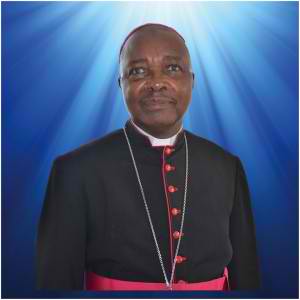KENYA: Kenya’s Apostolic Vicariate of Isiolo Elevated to a Diocese

Bishop Anthony Ireri Mukobo
Sr. Jecinter Antoinette Okoth, FSSA
His Holiness Pope Francis on Wednesday, February 15, elevated the Apostolic Vicariate of Isiolo located in the East Africa country to a fully-fledged Diocese, and Bishop Anthony Ireri Mukobo who has been the Vicar Apostolic and Titular Bishop of Rusguniae has been appointed the first Bishop of the new diocese.
According to the Kenya Conference of Catholic Bishops (KCCB), the Apostolic Nuncio in Kenya His Excellency Archbishop Hubertus van Megen shared an official communication which says, “I have the honour and pleasure to inform you that His Holiness Pope Francis has elevated the Apostolic Vicariate of Isiolo to a Diocese and appointed Right Reverend Anthony Ireri Mukobo IMC the Apostolic Vicar, as the first Bishop of the Catholic Diocese of Isiolo.”
Created as Apostolic Vicariate in December 1995, from the Catholic Diocese of Meru, Isiolo is one of the Suffragan Dioceses of the Archdiocese of Nyeri and it covers an area of about 25,605 square kilometers.
Bishop Ireri, a member of the Consolata Missionaries (IMC), has been overseeing the administration of the newly created Diocese since his appointed-on 25th January 2006 by Pope Benedict XVI following the death of Bishop Luigi Locati on 14th July 2005 who was the Vicar Apostolic since 1995.
Expounding on the difference between Apostolic Vicariate and a Diocese, Sr. Scholastica Kasisi Pius who works in the tribunal office for the Archdiocese of Nairobi as a Judge, shared with AMECEA online in an interview Thursday, February 16, that Apostolic Vicariate are “Territories formally called mission territories which depend on the congregation for the Evangelization of People.”
Referencing Canon 368, the member of the Little Sisters of St. Joseph (LSSJ) noted that “an Apostolic Vicariate is regarded as equivalent to a Diocese, with the fact that it represents stages in the growth of the particular church towards its establishment as a Diocese.”
For Isiolo to be elevated to a level of a Diocese Sr. Kasisi said, the Church must have considered the growth in number of the Catholic faithful within the territory and the growth in faith. Besides, “there is the possibility of organizing such a territory into an ecclesiastical hierarchy. That is, the elements required to establish a diocese must be considered which include among others the People of God, the Pastor, and the Presbyterium.”
According to the Kenyan nun who also lectures at the Catholic University of Eastern Africa (CUEA), the head of an Apostolic Vicariate may be a Bishop or not, though according to law his role is equivalent to a Diocesan Bishop.
She adds that “The power exercised by an Apostolic Vicar is vicarious and unlike the Diocesan Bishop, the Apostolic Vicar has ordinary power in their territories, but this power is vicarious, not proper. That is, they exercise their power not on their own name but in that of the Supreme Pontiff.”
Consequently, “a Diocesan Bishop has power to act in his own name, within the Diocese entrusted to him…within his Diocese, his power is ordinary, and does not act as a delegate of a higher authority and his power is immediate.”


